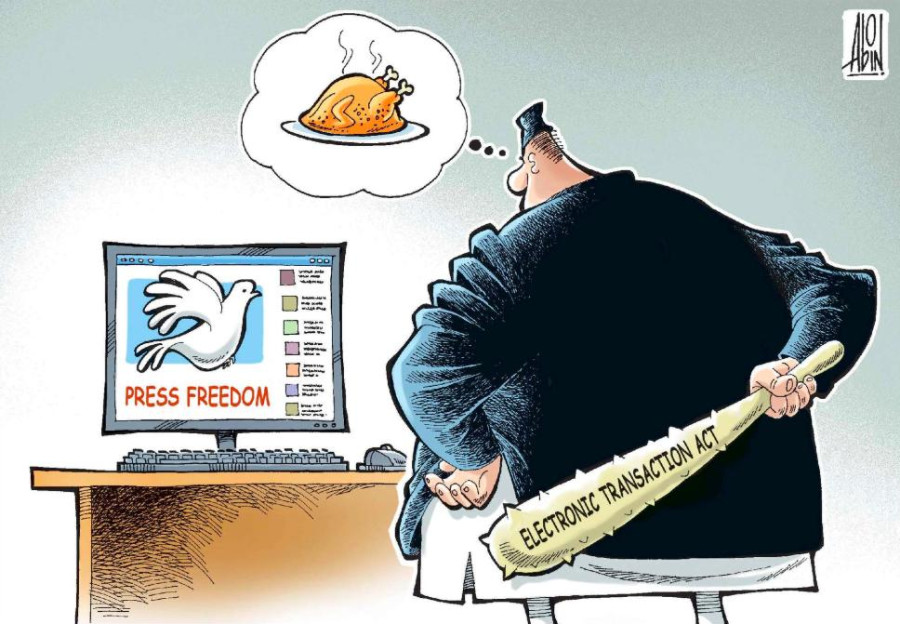Editorial
The criminalisation of legitimate journalism should not be taken lightly
This government’s penchant for controlling information and muzzling the press is particularly disappointing, since the KP Sharma Oli-led administration has repeatedly touted its commitment to transparency.
On Monday, Arjun Giri, editor of Tandav News, a Pokhara-based weekly, was detained for publishing a story online about a local businessman. Giri was arrested under the Electronic Transaction Act, a broad and vaguely-worded law intended to authenticate electronic transactions. This Act, along with other legal tools, has been used consistently by the government to curtail journalistic freedom, considerably shrinking the environment for free and safe reportage.
The new Criminal Code, for example, includes a number of articles that many human rights agencies say will severely hinder the ability of journalists to engage in free and fair reporting. Giri’s arrest in Pokhara was made under the provisions of the Electronic Transaction Act using tenuous arguments. This Act is already set to be replaced by the IT Bill, which is currently being discussed in Parliament. The new bill has been criticised for containing even more draconian loopholes that could potentially be used to curtail freedom of the press. One provision in the bill mentions that ‘inappropriate use of the electronic system’ could invite fines ranging from Rs 300,000 to Rs 1 million and jail time between one and 10 years, or both. This is worrying, as the provision’s vague wording leads it to be open to interpretation—and authorities could do so to suit their own interests.
Four journalists were detained under the Electronic Transaction Act in 2018, according to the Freedom Forum, a civil liberty group that advocates for free speech. According to the same report, in the last year, there have been 98 incidents of press freedom violations, the highest in the last six years, as compared to 66 cases of similar violations reported in 2017.
The criminalisation of legitimate journalistic activity should not be taken lightly. Cybersecurity is necessary, but authorities should not use safety as a weapon to gag the press. Any cybercrime legislation that possesses a threat to press freedom must be revised. Fear is a critical component of curtailing freedom, and recent studies on press freedom have shown a worldwide downward trend in access to unbiased media, along with an increase in attacks on journalists. Reporters Without Borders—an organisation advocating for freedom of expression—in its 2019 Press Freedom Index concluded that global press freedom is deteriorating wherein the situation for free media is considered satisfactory only in 24 percent of the nations. The authorities must allow a free flow of information, including criticism, as it is critical to the functioning of a vibrant democracy.
This government’s penchant for controlling information and muzzling the press is particularly disappointing, since the KP Sharma Oli-led administration has repeatedly touted its commitment to transparency. The tendency to suppress the free press often has unforeseen consequences, and if the state continues to do so, whatever achievements Nepal as a country has achieved so far will be offset by this seemingly precipitous slide towards authoritarianism.




 9.89°C Kathmandu
9.89°C Kathmandu














